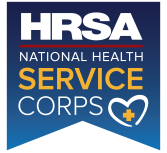Our Policy and Advocacy Priorities
The Association of Clinicians for the Underserved’s policy priorities are guided by our mission as a nonprofit, transdisciplinary organization of clinicians, advocates, and healthcare organizations united in a common mission to improve the health of America’s underserved populations and to enhance the development and support of the health care clinicians serving these populations.
Advocating in support of the nation’s clinical and non-clinical workforce serving the underserved, the organizations that employ them, and the patients they care for is at the center of our policy and advocacy efforts. While the list below does not represent all the areas ACU tracks and engages in with respect to our policy and advocacy, it signifies a short list of our priorities in our tireless work to fulfill our mission and achieve health equity.
Strengthening the National Health Service Corps
 ACU was founded in 1996 by members and alumni of the National Health Service Corps (NHSC). Recognizing firsthand the importance of the NHSC as both a recruitment and retention tool for organizations caring for underserved communities, and in enabling clinicians with the desire and commitment to work in underserved communities, ACU’s advocacy prioritizes support, growth, and expansion of the NHSC.
ACU was founded in 1996 by members and alumni of the National Health Service Corps (NHSC). Recognizing firsthand the importance of the NHSC as both a recruitment and retention tool for organizations caring for underserved communities, and in enabling clinicians with the desire and commitment to work in underserved communities, ACU’s advocacy prioritizes support, growth, and expansion of the NHSC.
Increased Federal Funding
Until recently, the NHSC was forced to reject 60% of all applications due to lack of resources and federal funding. While recent infusions of funding in the NHSC will enable growth and expansion, there is still much work to be done. Fourth quarter reports released for 2020 cite that nearly 33,000 clinicians are required to address the existing need across health profession shortage area (HPSA) designations. ACU continues to advocate for increased funding to address all existing need across HPSA designations, and furthermore to expand access to the NHSC to address the need for an expanded clinician workforce pipeline, recruitment, and retention program.
Expanded Eligibility for Participation
Through discussion and outreach to our membership and broader network, ACU is constantly evaluating the evolving clinical needs of underserved communities. While the NHSC’s existing structure serves as a critical foundation to address existing needs within medical, dental, and mental/behavioral health, additional disciplines and clinical practice areas are needed to address gaps in care and achieve truly comprehensive and integrated care in underserved communities. ACU advocates for the thoughtful and strategic expansion of NHSC eligibility (e.g., optometry, wide scope and licensing within mental/behavioral health, teaching, and administrative opportunities) to create and enable the clinical workforce to meet the needs of the nation’s underserved.
Improving Coverage & Access to Care
ACU works tirelessly to ensure that our patient populations have adequate, affordable, and equitable insurance coverage and access to care. Sadly, underserved populations continue to struggle to access affordable healthcare and insurance coverage in their community. There are many state and federal programs vital to underserved populations in enabling them to gain critical access to comprehensive care and insurance coverage. In recognition, ACU advocates regularly to support, enhance and expand programs like Medicaid, the Children’s Health Insurance Program (CHIP), Medicare, and other federal programs.
 Medicaid
Medicaid
ACU works closely with the Partnership for Medicaid, to raise awareness about the vital role of Medicaid in providing essential healthcare services to more than 75 million people. As a nationwide coalition of organizations, the group advocates for and provides viable solutions to improve the quality and delivery of services. Further, the Partnership advocates for policies and resources with the aim of constraining costs without undermining the fundamental goals of Medicaid.
Advocating for the Health Center Program
 Nearly 90% of health center patients are at or below 200% of federal poverty level. Without question health centers are truly the health care safety net for America’s underserved populations. Health centers also make up the largest portion of NHSC placements. Indeed, Health centers rely heavily on the NHSC to recruit and retain clinicians to care for the communities. The connection to the NHSC and the importance of the Health Center Program cannot be overstated in providing critical access to care for the underserved. ACU advocates aggressively in support of additional resources and expansion of the Health Centers Program.
Nearly 90% of health center patients are at or below 200% of federal poverty level. Without question health centers are truly the health care safety net for America’s underserved populations. Health centers also make up the largest portion of NHSC placements. Indeed, Health centers rely heavily on the NHSC to recruit and retain clinicians to care for the communities. The connection to the NHSC and the importance of the Health Center Program cannot be overstated in providing critical access to care for the underserved. ACU advocates aggressively in support of additional resources and expansion of the Health Centers Program.
Supporting the Teaching Heath Centers Graduate Medical Education Program
ACU’s focus on clinical workforce advocacy include support for the Teaching Health Centers Graduate Medical Education (THCGME) Program. A critical element of a comprehensive clinical workforce is the continuum of training and placement within underserved communities. Starting with the NHSC scholarship program, transitioning to THCGME and finally leveraging the NHSC loan repayment program for continued practice within underserved communities represents an ideal model. ACU actively advocates for continued support and expansion of the THCGME Program, both independently and in collaboration with state and national partners.

